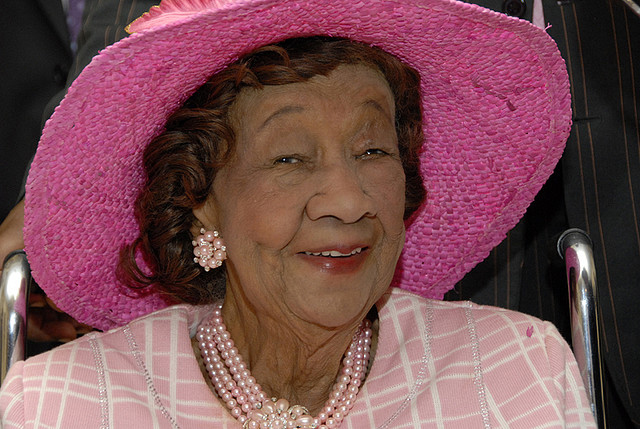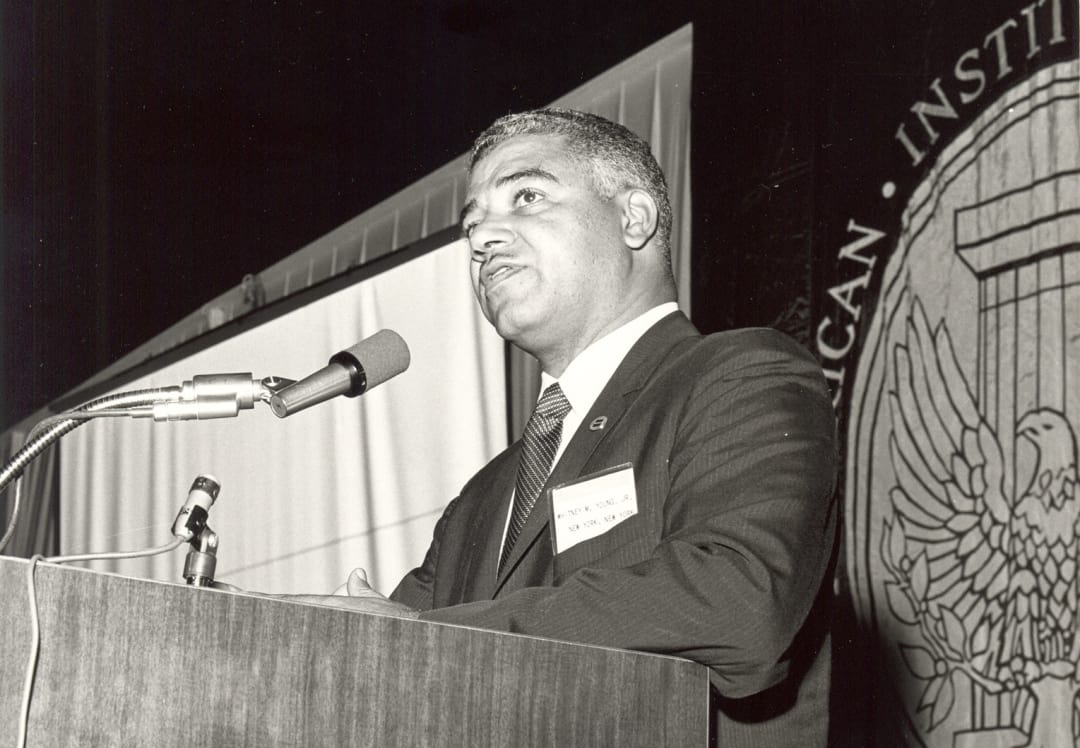Dr. Dorothy Height

Dr. Dorothy Height was born in Richmond, Virginia in 1912, and was educated in the public schools of Rankin, Pennsylvania; outside of Pittsburgh. Dr. Height won an oratorical scholarship, which along with a record of scholastic excellence, allowed her to enroll in New York University where she earned her bachelor and master’s degrees in four years. Dr. Height did further postgraduate work at Columbia University and the New York School of Social Work. Ms. Height was among the coalition of African American leaders who pushed civil rights to the center of the American political stage after World War II, and she was a key figure in the struggles for school desegregation, voting rights, employment opportunities and public accommodations in the 1950s and 1960s. Dr. Height was often times known as the “Godmother of the Civil Rights Movement.” President Barack Obama stated that “She never cared about who got the credit. What she cared about was the cause. The cause of justice, the cause of equality, the cause of opportunity, freedom’s cause.”
“We have to improve life, not just for those who have the most skills and those who know how to manipulate the system, but also for those who often have so much to give but never get the opportunity.”
Whitney M. Young Jr.
 Whitney Moore Young Jr. was born in Kentucky in 1921. Young earned a Bachelor of Science degree from Kentucky State University where he became a member of Alpha Phi Alpha Fraternity. From 1942-1944, while serving in the U.S. Army, he studied engineering at the Massachusetts Institute of Technology. After his discharge, Young went on to earn his MSW from the University of Minnesota. He then began to work with the Urban League in Minnesota. He became executive secretary of the Urban League in Omaha, Nebraska. Young became the executive director of the National Urban League in 1961. Young also served as the Dean of the School of Social Work at Clark Atlanta University, which now bears his name.
Whitney Moore Young Jr. was born in Kentucky in 1921. Young earned a Bachelor of Science degree from Kentucky State University where he became a member of Alpha Phi Alpha Fraternity. From 1942-1944, while serving in the U.S. Army, he studied engineering at the Massachusetts Institute of Technology. After his discharge, Young went on to earn his MSW from the University of Minnesota. He then began to work with the Urban League in Minnesota. He became executive secretary of the Urban League in Omaha, Nebraska. Young became the executive director of the National Urban League in 1961. Young also served as the Dean of the School of Social Work at Clark Atlanta University, which now bears his name.
Young became President of the National Association of Social Workers in 1969, serving until 1971. In 1970, Young called on social workers to take action via the NASW News. “The crisis in health and welfare services in our nation today highlights for NASW what many of us have been stressing for a long time: inherent in the responsibility for leadership in social welfare is responsibility for professional action. They are not disparate aspects of social work but merely two faces of the same coin to be spent on more and better services for the people who need our help. It is out of our belief in this broad definition of responsibility for social welfare that NASW is taking leadership in the efforts to reorder our nation’s priorities and future direction, and is calling on social workers everywhere to do the same.”
Young was a noted civil rights leader and statesman who worked to eradicate discrimination. He received many honorary degrees and awards —including the Medal of Freedom (1969), presented by President Lyndon Johnson—for his outstanding civil rights accomplishments.
